
Master’s program
“Digital Humanities”
Title/degree: Master’s of Science (MSc) in Chemistry
Duration: 2 years (120 EC), full-time
Start month: September
Language of instruction: Russian/English
Program code:47.04.01 Philosophy
Department: Institute of the Human of the Digital Era
What Is Digital Humanities?
- Latest breakthrough growth area for the humanities in the modern world;
- Study of the specific nature of the new world, critical analysis of social and cultural effect of digital technologies, their potential and limits;
- Development of the specialized software and geographic information systems (GIS);
- Conceptual design of software for the field of humanities;
- Application of computational technologies to cultural heritage: creating and maintaining digital libraries, archives, and digital museum collections, performing digital reconstruction;
- Creative work: new media, computer-aided design (CAD), industrial design.
Why Choose Our Program?
- Receive education that meets global quality standards;
- Develop a set of digital skills required by most employers, governments, and other institutes of modern world, including social media, blogging and microblogging services, fields as game design, advertising, journalism, digital visualization, supervision, and more;
- Perform scientific research in the context of new agenda;
- Be a part of global scientific community;
- Choose your personal educational path (the curriculum is designed according to each learners’ needs);
- Try new educational technologies (problem based learning, project work, online and distance education);
- Get familiar with digital research methods from the entry level (no previous experience in programming is necessary);
- Scholarship and grant programs are available;
- Meet new international friends and colleagues.
Core courses
- Human Being as a Philosophical Problem
- Theory and Practice of Virtual Reality and Artificial Intelligence
- Information Society: Theory and Practice
- Modern Communication Theories
- E-Learning in Higher Education
- Foundations of Social Robotics
- Digital Preservation and Promotion Technology for Cultural Heritage
- IT Project Management
- Computer Graphic Design
- Foundations of 3D Modelling
Career prospects
Our graduates are in demand: professional activities of the Master’s programmein Digital Humanities include research, consulting, and analytical activities in IT sector and social and humanitarian areas.y.
Graduates of the programme can choose a career in : teachingin higher educationinstitutions, management,design, development, and promotion of Web resources; peer assessment of digital resources; consulting on the development of the information society and information technology,analytics, web-analytics, internet communications, programming, consulting, marketing and advertising, media management, social service, social robotics, computer game design, mobile application development, modern digital art, big data storage and management, art and culture, work in museums and archives, scientific research, and more.
After you graduate you can be:
• social media expert;
• social robotics designer;
• coordinator of online learning;
• personal charity platform moderator;
• crowdsourcing specialist;
• cyber security specialist;
• virtual attorney;
• game designer;
• technical writer;
• game programmer
• project manager/mediator in IT
…and more
Academic сouncil
- Mozhaeva Galina V.(Chair) – Candidate of Historical sciences, Director of the Institute of Distance Education of TSU, Executive director of StrAUs Institute of the Human of the Digital Era, head of the Department of Humanitarian Problems for Informatics
- Zilberman Nadezhda N. (Vice-chairman) – Candidate of Philological Sciences, Associate Professor of the Department of Humanitarian Problems for Informatics
- Borodkin Leonid I. – Doctor of Historical sciences, Professor, Associate member of Russian Academy of Sciences on the issues of historic-philological sciences , Russian Natural Sciences Academy academic, Head of the Department of Historical Informatics of Historical Faculty of Lomonosov Moscow State University, President of the Association “History and Computer”, board member of Russian Association for Digital Humanities (on agreement)
- Ali Rashidi – Director of the Department for International Cooperation of Folkuniversitetet in Uppsala, Sweden (on agreement)
- Lapteva Marina A. – Candidate of Philosophical sciences, Associate Professor of the Department of Information Technologies in Creative and Cultural Industries of the Siberian Federal University (Krasnoyarsk), Chairman of the Board of the Russian Association for Digital Humanities (on agreement)
- Alexandrova Lyudmila – Head of the Department of humanitarian subjects of Russian-British Institute of Management (on agreement)
- Brel Elena Y. – Candidate of Psychological sciences, Head of the Educational management of TSU
- Ketova Tatyana S. – Executive director of Higher IT School of TSU
- Lukina Nelli P. – Doctor of Philosophical sciences, professor of the Department of Humanitarian Problems for Informatics
- Melnikov Vladimir – Director of studio Avaj and advertising agency «Vebreklama»
- Parkhomenko Andrei – Director of AR/VR company «Phygitality» (on agreement)
Partners
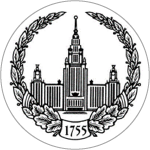
Lomonosov Moscow State University
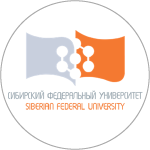
Siberian Federal University
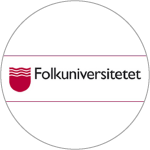
Folkuniversitetet (Switzerland)of the SB RAS, (Novosibirsk)
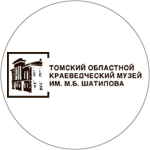
Tomsk History Museum of the SB RAS, (Novosibirsk)
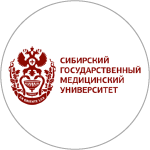
Siberian State Medical Universityof the SB RAS, (Tomsk)
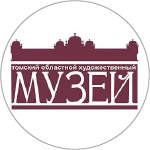
Tomsk Regional Art Museum

Userstory (Tomsk)
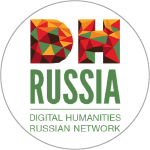
Digital Humanities Russian Network

Universidade Federal do Rio de Janeiro, UFRJ
Research
Project 1
Using big data analytics to discover social networks potential to find and attract, and retain the talented youth in regional higher education institutions. To find out more about the project follow the link
To perform high-tech analysis of synthesized social networks datawe use a combination of mathematical modeling, network visualization, cognitive linguistics, pedagogy and digital humanitaristics. In the course of the project we collect data from the social network VKontakte (VK), interpret texts, create visual models of network interaction patterns of prospective students on VK, develop a complex image of a prospective student of a regional higher educational institution, detect the talented youth among high-school students based on their VK profiles, and create a database of prospective students of TSU.
Project 2
Creating a regional Center for Excellence in On-line Teaching
The project aims to create an infrastructure and a pool of skilled professionals in the area of effective application of on-line teaching in classrooms of higher education andnon-university level higher education institutions in the regions of Russia.
Project 3
«QM&CQAF – The expansion of the EU-approaches to providing the partner-countries higher education quality assurance Expanding Quality Assurance»
The General objective of the Project is the EU educational quality model adaptation at national level and gathering positive utility practices of that model’s dissemination and educational quality assurance.
The following activities to be done during this project:
– Research of quality model CQAF appreciation in the partner countries;
– The exploitation concept CQAF quality model elaboration in the partner countries
– Resource and promotional materials elaboration;
– Training the tutors in the CQAF model recipient-countries universities;
– Higher education quality model Guide elaboration and discussion on the national level;
– CQAF model exploitation processes support and monitoring in the recipient-countries;
– Additional research of the CQAF quality model appreciation in the partner countries and deliverables according to Quality Management principles.
Project 4
Developing educational on-line projects of TSU. For more information about the project go to
The projects aims to develop a number of on-line courses which will improve the visibility of the university in the world, potentially attract more international students; improve the quality of teaching thtough integration of technology and conventional teaching practices.
Throughout the project we plan to launch new and improve existing MOOCs based on customer reviews, teach TSU teaching staff how to develop their own MOOCs in Russian and English, improve collaboration with existing international platforms like Coursera, Stepic, Lectorium, and much more.
Admission and application
| Specific requirements | Detailed information |
| Knowledge minimum | Bachelor degree, Specialist diploma |
| Previous education | Various fields |
| Professional experience | Relevant working experience is an advantage, it is not necessary |
| Other admission requirements | Students will be selected based on an: 1) Philosophy exam(in person or using Skype); 2) Interview (in person or using Skype); 3) English ( exam or providing an IELTS or TOEFL certificate). |
Tuition fees
| Year | Citizens of the Russian Federation and near abroad | Other International Citizens |
| 2017-2018 | 125 100 RUB | 150-120 RUB |
Application deadlinesfor the citizens of the Russian Federation and CIS
countries in 2018
| Application deadline | April 3 – August 14 |
| Examinations | May 10 – August 16 |
Application deadlinesfor the other International
citizens in 2018
| Appication deadline | January15 – July 10 |
| Examinations | January16 – July 26 |
Interested?
Apply Right Now!
Contact:
Program manager Natalia Bulgakova
E-mail: nikolaenkova@ido.tsu.ru
Academic office: Tomsk State University, Moskovskiy trakt 8 (Building № 4), room 313,
Tomsk, 634050, Russia
https://vk.com/huminf
http://huminf.tsu.ru/enf
© 2017 Tomsk State University
